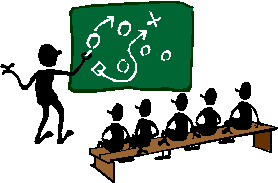In my last blog, What Shape is your Rowing Club? I talked about how the changing face of top sport and society in general had changed the shapes of our rowing club and described the common contemporary club as an hourglass. By this I mean a club with many children, many masters rowers and not much in the middle.
This spread of ages and the increasing number of masters who want to row present challenges to club management. Some of the oldies who previously would have coached want to row, there are increasing numbers of mature types who have never rowed who want to be coached and there are fewer fit young adults around to race for the club and to work around the place. Clubs have responded to the challenge in different ways.
Examples in New Zealand include effectively becoming a masters only club, (Union R.C.), incorporating school age rowers in club crews (Waihiopai R.C.), Having parents of the school rowers form their own crews ( Christ’s College and the Waka Tuis) and ignoring the problem and hoping it will go away – some clubs I won’t name.
One of the commonly heard complaints is that the Masters want the same boats as the school rowers and this can lead quickly to heated debate with accusations of bias and favouritism following quickly from the initial conflict. It can be a real problem with masters regattas sometimes clashing with school training but it is surely solvable with good will on all sides. At my local club the Masters row at 06:00 on Saturdays and Sundays and then the children start at 07:30 and this seems to work well.
A more intractable pro blem is coaching. Most clubs are short of coaches and an influx of wanna be Masters will stretch resources. This is where the challenge has to be turned around and seen as an opportunity. The club needs to train more coaches and this will create an asset for the future. Easier said than done I hear you cry! True, but nothing worthwhile is easy.
blem is coaching. Most clubs are short of coaches and an influx of wanna be Masters will stretch resources. This is where the challenge has to be turned around and seen as an opportunity. The club needs to train more coaches and this will create an asset for the future. Easier said than done I hear you cry! True, but nothing worthwhile is easy.
The first question is who can coach? At Avon RC when the Corporate Eights event was on we turned things upside down and had experienced school rowers coaching adult beginners. A competent 16 year old rower is quite capable of teaching adults to row and it looks good on the cv. Ideally the club can provide one experienced coach as a mentor to a number of such young coaches.
Another source of coaches is among the new Masters rowers who are queuing up to join the club. We tend to very blinkered in our thinking and to follow the same path – coaches must have been good at the sport they coach when they were younger. Not necessarily so. Karl Adam coached two Olympic golds and a silver and had never rowed. Our own Norm Charlton of Cambridge and New Zealand has had international success with no rowing background.
This of course raises the big question – how to teach someone to be a coach. I believe it is possible and will be addressing the problem over the coming weeks in this blog.






